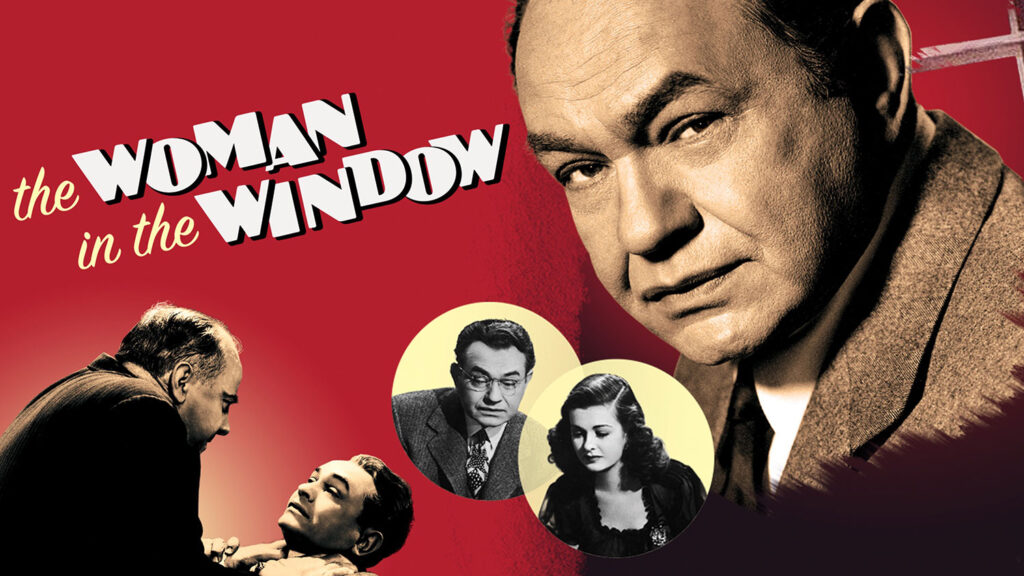I’d watch a movie starring Edward G. Robinson any day. He’s one of my favorite actors, always turning in nuanced, mesmerizing performances.
Pair him with director Fritz Lang, and toss in Joan Bennett, Raymond Massey, and Dan Duryea, and you can’t go wrong.
That’s the lineup we get in this week’s club pick, The Woman in the Window (the 1944 version).
There’s little of the Expressionist light and shadows of many of Lang’s other films or of other films noir, but he layers on the genre’s moral ambiguity in The Woman in the Window. It’s a solid thriller.
Robinson plays psychology professor Richard Wanley brilliantly. In one day, Wanley goes from sending his wife and kids off to visit family to hiding the body of a man he’s killed in a mysterious woman’s apartment. And, Bennett is alluring as Alice Reed, the unintentional femme fatale.
Lang ratchets up the tension as Wanley and Reed make poor choices that worsen the situation. The two understand right and wrong — or what they should do and what they shouldn’t — yet casually and repeatedly cross moral lines.
Wanley’is friend, district attorney Frank Lalor (Massey), is tasked with finding the killer. We watch his investigation from Wanley’s point of view, where everything he says or does seems incriminating.
Then the dead man’s scheming bodyguard (Duryea) shows up to make matters worse by blackmailing Wanley and Reed. Hinting at more bad choices to come, the professor tells Reed, “There are only three ways to deal with a blackmailer. You can pay him and pay him and pay him until you’re penniless. Or you can call the police yourself and let your secret be known to the world. Or you can kill him.”
Just when you finally realize that, in the tenets of the films noir, things aren’t going to end well for anyone, Lang subverts it all with a Wizard of Oz-like twist.
The ending could have easily failed if not for Robinson’s skillful ability to transition from drama to subtle comedy. Instead, it’s relief you feel rather than despair.
